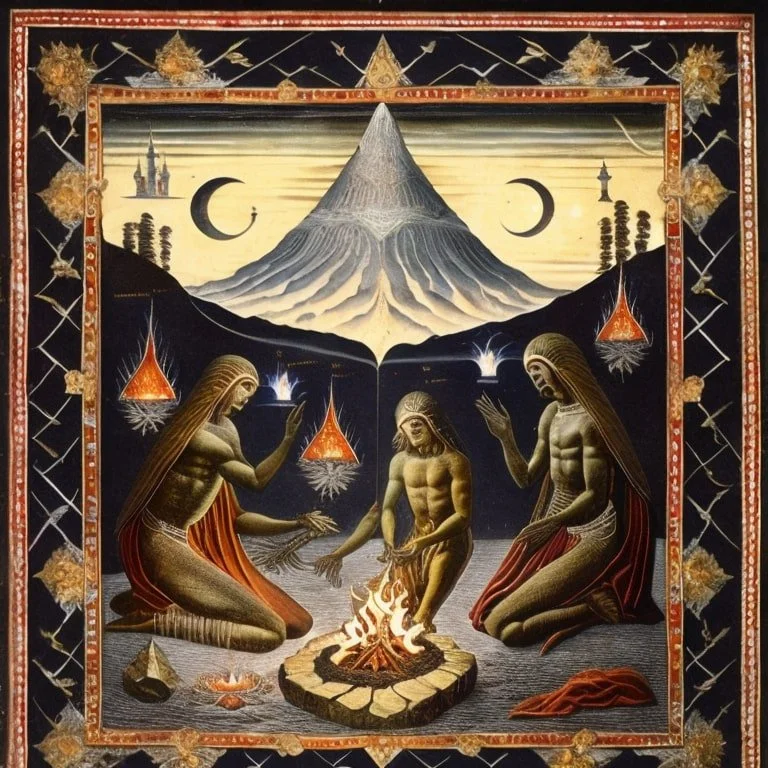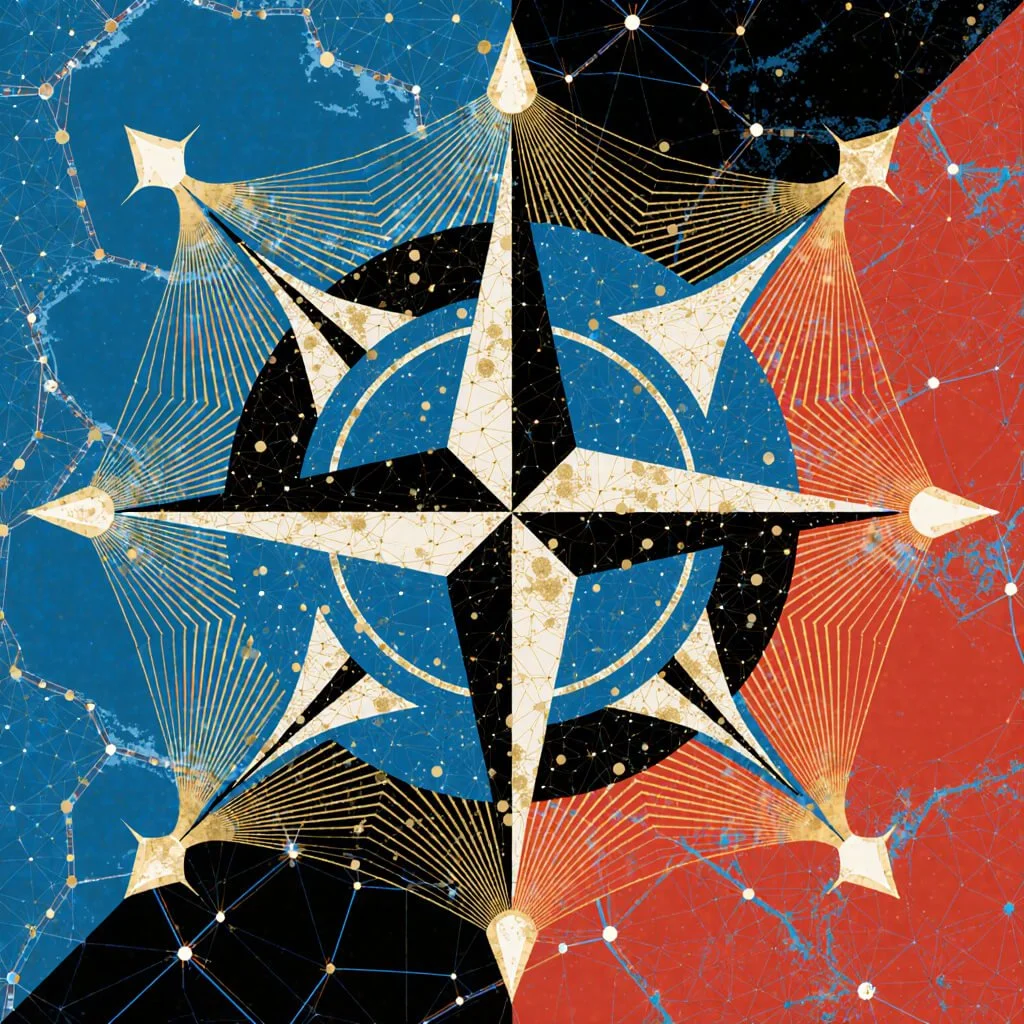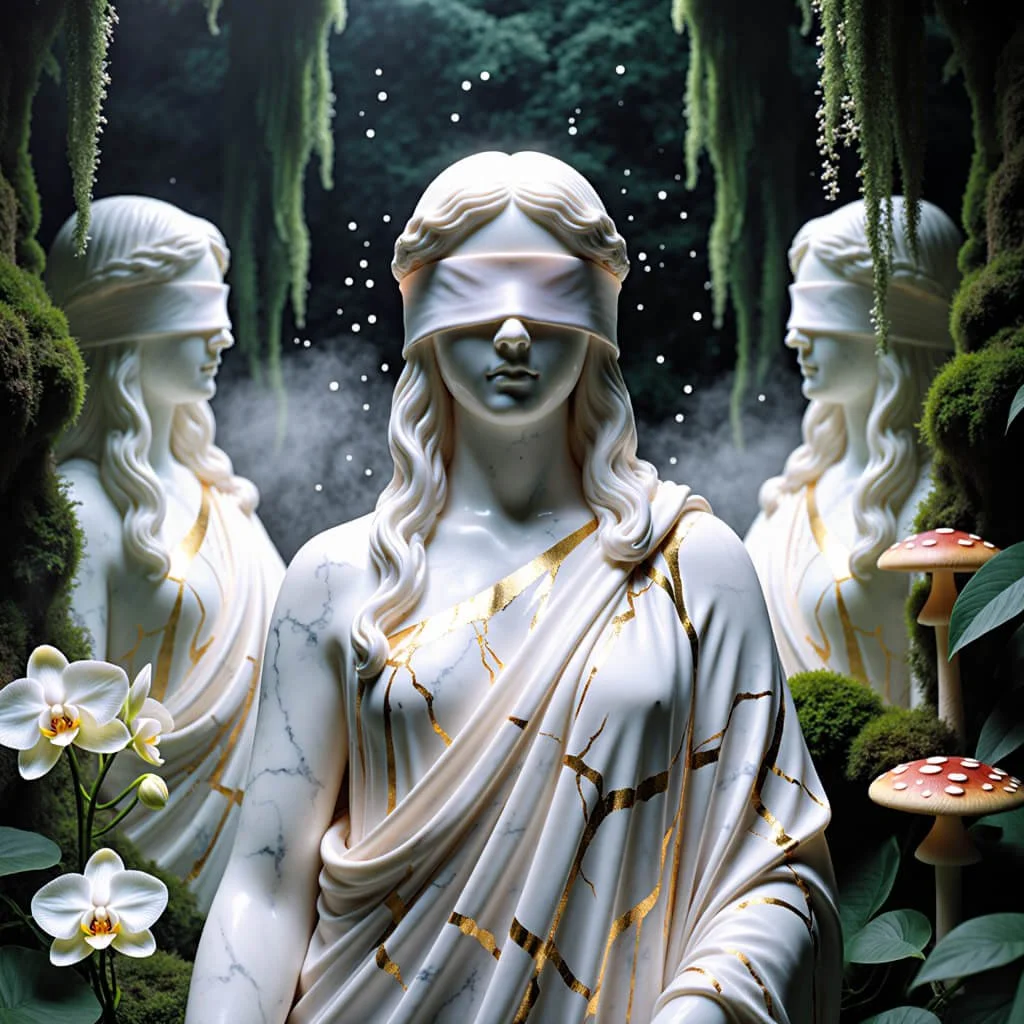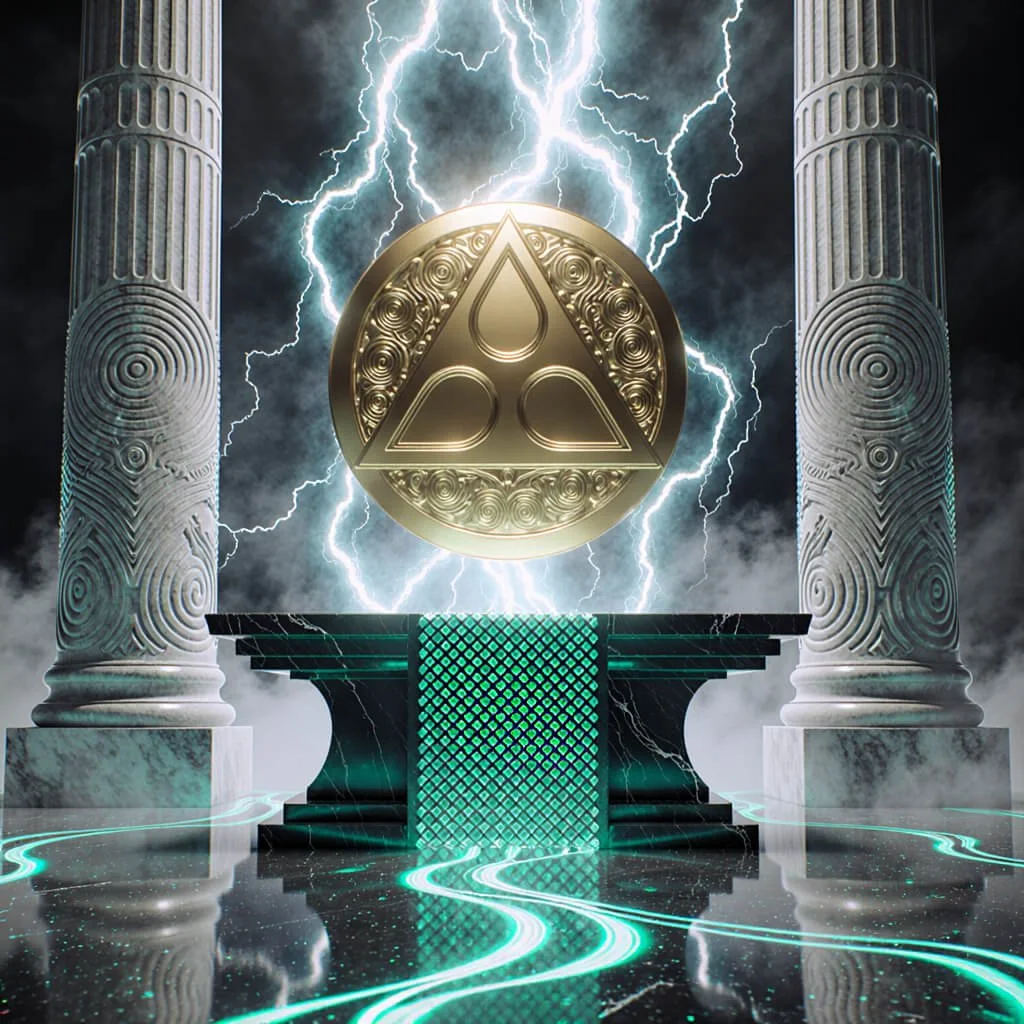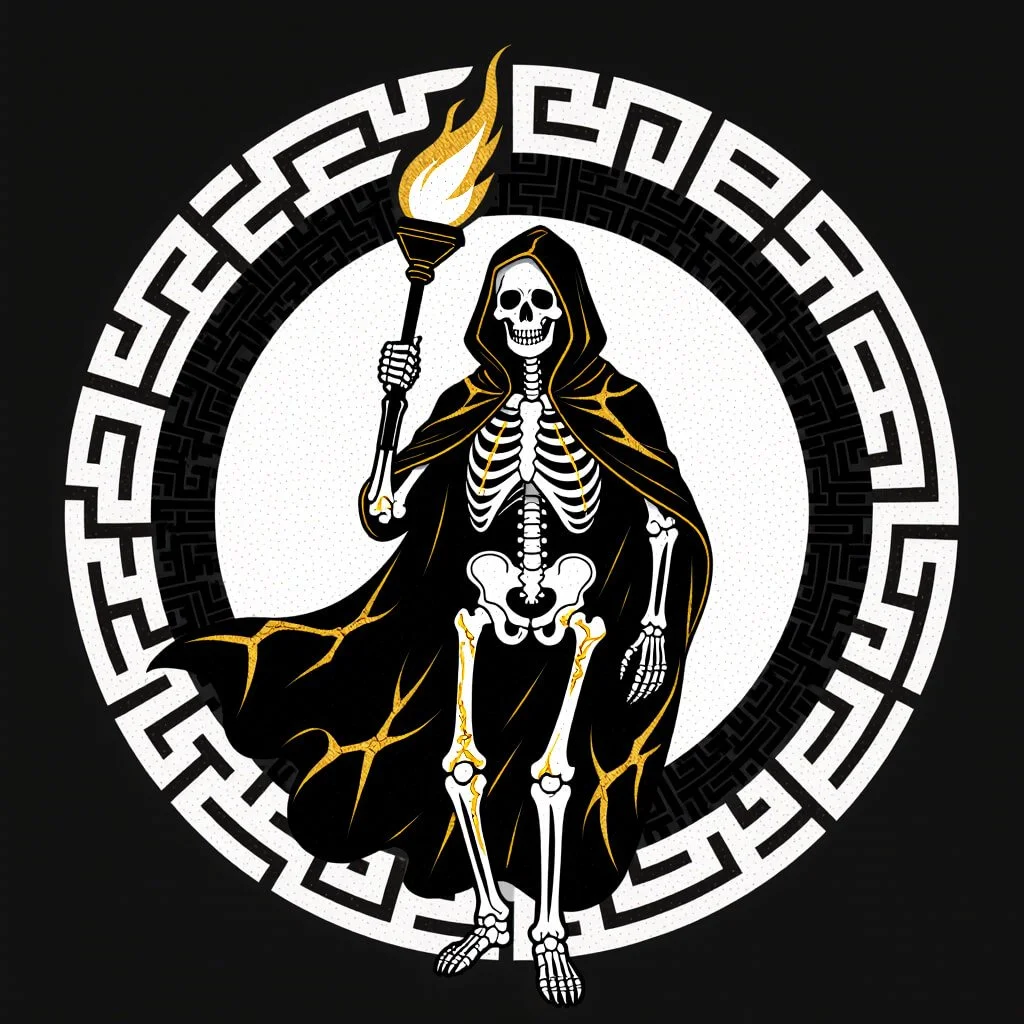The Lost Library of The Moscow Tsars
Summary
The Lost Library of the Moscow Tsars was a legendary trove of ancient wisdom and occult knowledge assembled in the 16th century under Ivan the Terrible.
It contained plundered relics and mystical texts from cultures across Russia's expanding empire, including rare works on alchemy, astrology, Eastern philosophies, and banned gospels.
The library vanished from the Kremlin's vaults during Ivan's reign, likely hidden away to suppress dangerous ideas that threatened centralized power of church and state.
Theorists link the library to the lost civilization of Tartaria which possessed advanced yet suppressed sciences.
The story illustrates the cycle of conquered cultures' knowledge appropriated by empires, and remains an allegory for modern struggles over access to forbidden information.
Beneath the labyrinthine vaults of the Moscow Kremlin lies a secret that has confounded explorers for centuries - Russia's legendary Lost Library, one of history's most mythical vanished treasures.
This ancient collection of occult lore and forbidden knowledge has driven mad tsars, holy men, and conquistadors alike with its tempting promise of harnessing sacred wisdom from the far reaches of the earth. Assembled in the 16th century at the height of Moscow's imperial expansion under Tsar Ivan the Terrible, the primordial library bloated with plundered relics of civilizations conquered by the Russian realm.
The vaults teemed with rare texts, talismans, and artifacts pilfered by marauding Cossacks - from the arcana of Siberian shamans to the angelic visions of Byzantine monks. Desperate to decipher the magical power hidden within its contents, Ivan sequestered Russia's finest astrologers, alchemists, and mystics to study the troves.
But the more his occultists delved into the esoteric library, the deeper into the abyss Ivan's soul descended. In his final maddened years, consumed by paranoia, he hid much of the collection in sealed Kremlin dungeons to keep it from enemies real and imagined.
Following Ivan's death, the underground complex was lost for centuries - though some claim strange lights and chants still echo through its stygian sunken halls. Today, the Forbidden Library remains one of history's most legendary lost treasures - a mystical wormhole to ancient heresies, dark prophecies, and secret occult knowledge later rulers sought to banish from memory.
The Legendary Lost Library of the Moscow Tsars
Origins of the Library
The library was initially compiled by Grand Duke Ivan III, known as Ivan the Great, who ruled Russia from 1462 to 1505. Ivan married Sophia Palaiologina in 1472, who was a niece of the last Byzantine emperor. Her dowry included many rare manuscripts and books from the libraries of Constantinople and Alexandria.
Ivan's son, Vasili III, expanded the library's collection. In 1518, the Greek scholar Maximus the Greek visited Moscow and was shown the library by Vasili. He was amazed at the breadth of Greek books, which surpassed even the libraries of Greece.
But it was under Ivan IV, known infamously as Ivan the Terrible, that the library grew to mythic proportions.
During his reign from 1533 to 1584, Ivan aggressively expanded Russia's borders eastward into Siberia and southward to the Caspian Sea. Through these conquests, many ancient texts and artifacts were brought to Moscow and added to the library.
Rumored Contents of the Legendary Library
While the full contents of the mythical Lost Library may never be known, legends tell of it containing writings and artifacts gathered from across Europe, Asia, Africa and the Middle East.
Passed down through oral traditions and fanciful embellishments, these stories paint a vivid picture of the breadth of forgotten knowledge it may have held. Here is an extensive accounting of the rumored contents:
Ancient Greco-Roman Treasures
The Library was said to hold many precious texts from the great ancient libraries of Greece and Rome. These included:
Original manuscripts of lost plays by Aeschylus, Sophocles and Euripides
Unknown philosophical dialogues by Plato and Aristotle
The legendary lost second book of Aristotle's Poetics
Treatises on geometry and mathematics by Euclid and Archimedes not preserved elsewhere
Rare Latin medical texts of Galen and Hippocrates from the Library of Alexandria
The mysterious ancient Greek alchemical manual known as Physika kai Mystika
Works of the Church Fathers
Early Christian texts featured prominently, including:
The rumored long-lost Gospel of Eve, which detailed Creation from her perspective
The forbidden Gospel of Judas Iscariot, portraying him as Jesus' closest confidant
The Apocryphon of James, which records Jesus imparting secret gnostic teachings
Prophetic books and letters attributed to Apostles Thomas, Bartholomew and Matthias
The mystically revealing Secret Book of John from the Gnostic Nag Hammadi library
Lost historical texts from first century Jewish-Roman historian Josephus
Occult Tomes
The lost library of the moscow tsars was rumored to house many rare books on esoteric arts including:
The Egyptian Book of the Dead, containing ancient magic spells and incantations
The Emerald Tablet, engraved with the secret alchemical formula of the magician Hermes Trismegistus
The ancient Mongolian book Ovnanycer, said to wield powers of prophecy
Works on Jewish mysticism and the Kabbalah from the schools of Babylon and Egypt
The Book of Soyga, a treatise on scrying and demonic conjuration composed in England in the 1500s
The Steganographia of Johannes Trithemius, concealing mystic rituals in a ciphered form
Five Classics of Chinese Antiquity
From China, texts included:
The 2nd century BCE history Records of the Grand Historian by Sima Qian
The epic 3rd century BCE poetry collection Songs of Chu
The 5th century BCE military treatise The Art of War by Sun Tzu
The 2nd century BCE cosmology Workings of the Natural World by Zhang Heng
The 4th century BCE philosophy Confucian Analects by Confucius
Islamic Golden Age Knowledge
Scholarly treasures of the Islamic world were said to be held, including:
The 10th century Kitab al-Fihrist encyclopedia of Arabic books by Ibn al-Nadim
Medical texts like the Canon of Medicine by 11th century polymath Avicenna
Al-Khwarizmi's 9th century treatise introducing algebra
The Rubaiyat of Omar Khayyam, an 11th century book of poetry
The great history of 14th century North Africa, the Muqaddimah by Ibn Khaldun
Russian Folklore and Legends
Works of Russian literature and oral traditions included:
10th century religious songs and stories of Kiev and Novgorod
Woodblock printed tales of heroes like Sadko, Ilya Muromets and Dobrynya Nikitich
Chronicle of Ivan the Terrible, a mysterious lost account of his reign
Ancient pagan songs worshipping Perun and Veles, gods of the Rus' people
Magic spells, charms and folk remedies preserved by villages' witch doctors
Epics, fables and songs passed down in Siberia and among Central Asian Turks
Secret maps of gold, gems and other treasures hidden away from Tartar invasions
Sacred Texts of India, Persia and Tibet
Eastern works also featured, including:
Lost books on meditation from the Vedic and Epic eras of India
Rare Zoroastrian texts in Avestan and Pahlavi from pre-Islamic Persia
Tantric manuals and mandala diagrams from Tibetan Buddhist monasteries
The Bakhshali manuscript, an ancient Indian mathematical treatise
Legends and prophesies surrounding King Ashoka of the Mauryan Empire
Forgotten source texts of the Panchatantra fables and the Kama Sutra
Artifacts and Relics
In addition to written works, various wondrous objects were rumored to be held, like:
Celestial globes and astrolabes from ancient Greece and the Islamic world
Alchemists' flasks, furnaces and vials containing rare elements and formulas
Precious gemstones engraved with mystic runes and symbols
Tarot cards and scrying mirrors used in rituals of divination
Ancient Chinese abacuses and medicine balls inscribed with longevity exercises
The legendary ammonite bowl of King Solomon said to grant visions
Bejeweled daggers, swords and armor of Russian tsars and Mongol khans
Jewel-toned silks, damasks, and embroidered textiles from the Silk Road
Intricately illuminated manuscripts with gold-leafed paintings and calligraphy
Carved tusks, skulls, and Pegasus figurines dating to ancient Scythia
The Library's Disappearance
Shortly before Ivan's death in 1584, the library seemed to vanish without a trace. Ivan had become increasingly paranoid and erratic later in life, earning him the epithet of "the Terrible". He was rumored to have concealed the library in hidden underground vaults beneath the Kremlin.
Some believed he purposefully hid the library to prevent its knowledge being used against him. Others said he cursed it to blind any who tried to uncover its secrets. More fantastical tales suggested he was using its magical tomes to summon demons and practice the dark arts.
After Ivan's death, his successors tried vainly to find the lost library. Peter the Great even excavated under the Kremlin in search of it. But its route through underground passageways was tangled and maze-like, built to deliberately confuse any searching for it.
TSAR'S OCCULT FIXATION DOOMS LIBRARY
Other accounts claim it was not secrecy, but Ivan's obsession with the library's magical arcana that sealed its fate.
Having conquered vast territories, Ivan saw harnessing the library's power as the key to cementing his empire's domination. He sequestered Russia's top astrologers, alchemists, and mystics to use the texts for occult rituals and divination.
But in his quest for supernatural knowledge, Ivan unlocked forces beyond his control. The grimoires' incantations and alchemical experiments soon conjured up disturbing otherworldly phenomena even his sorcerers could not contain.
Strange spirits and demons now stalked the Kremlin halls at night. Advisors whispered that the library had become cursed, its texts too dangerous and baneful to remain. But Ivan refused to relent, driving his occultists to recklessly delve deeper despite the mounting psychic chaos.
Finally after a disastrous infernal summoning, the library mysteriously disappeared overnight. The next day Ivan claimed he had it destroyed to save Russia from its malevolent influences. But many believed the tsar's meddling with powers beyond his grasp led to the library being swallowed into the abyss.
SECRET EVACUATION TO THE VATICAN
Rumors hold that the library's contents were smuggled out of Russia entirely into the archives of the Vatican.
As Ivan's reign deteriorated, advisers warned that rival powers like Poland or Sweden could seize the texts if they conquered Moscow. To keep the library from potential captors, the Kremlin patriarch Nikon began covertly shipping its treasures to Rome starting in the 1570s.
There they remained hidden for centuries deep within the Vatican Secret Archives - an impenetrable maze said to hold occult works and subversive histories deemed too radical for public release.
Vatican officials have always denied this incredible charge. But conspiracy theorists point to the Church's historic censorship and suppression of challenging ideas to argue this sacred contraband still hides in their forbidden vaults.
PLUNDERED BY THE MONGOL GOLDEN HORDE
A controversial theory claims the Lost Library was appropriated by the descendants of the Mongol Golden Horde as payback for their conquest centuries earlier.
While Ivan warred on Siberia and the Caspian, factions within the Horde were reasserting independence from Moscow. They plotted to reunite their people by force and revive the Khanate that once dominated Russia and Eastern Europe.
As the Horde's clans reorganized, they infiltrated Moscow and managed to loot the legendary library from the Kremlin - evacuating camel caravans heavy with plundered knowledge. Taking this intellectual treasure was symbolic vengeance for the cultural riches Genghis Khan's empire lost when Russians seized its archives in 1237.
The Horde secretly absorbed the library's contents into its own growing collection as it mobilized to resist Russian expansion. To this day, the nomadic heirs of the Golden Horde wander Central Asia guarding ancient wisdom too powerful for settled kingdoms.
APPROPRIATED BY THE BRITISH EMPIRE
A more mainstream hypothesis contends scholars in Protestant England "rescued" rare texts and transported them to the British Isles.
During Elizabeth I's reign, English agents managed to copy or steal occult works from the continent's libraries for the crown. The spy John Dee was renowned for returning from his European travels with confiscated mystical and alchemical treatises.
As England warred with Catholic rivals while trading with Russia's nobility, their networks penetrated into Moscow. Poaching some of the legendary library's contents increased British knowledge for warfare, economics, and religious debate.
Once in England, the Russian treasures were either hidden away as state secrets in the British Library or secured in elite scholarly collections. Over time, any foreign origins of these "saved" manuscripts were forgotten or deliberately obscured.
The Tudor appropriation of the library represents a common tactic of empires absorbing stolen knowledge for their own advancement, while keeping monopolies on its power.
The true circumstances around how such an astonishing collection vanished remain puzzling centuries later. But the enduring legend of Moscow's Lost Library still reminds us of both the fragility and resilience of humanity's intellectual heritage.
Seekers of the Lost Library
In subsequent centuries, the myth of the lost library drew renewed interest from scholars and adventurers enchanted by its legends.
In the 19th century, archaeologist Ignatius Stelletskii became obsessed with recovering the library. He scoured the Kremlin archives for clues to its hidden location. He uncovered mention of "two large rooms filled with treasure chests" dating to the era after Ivan's death. But his lifetime of searching left the library still undiscovered.
Others claimed to have come close to finding it. Professor Dabelov said he found records in Pernau detailing the library's holdings. But soon after it vanished, leading to suspicions of a coverup. In the 1890s, a Professor Thraemer of Strasbourg was convinced it lay hidden in the Kremlin catacombs. But his excavations also failed to unearth this lost storehouse of wisdom.
Enduring Mysteries of Russia's Forbidden Library
The legends of Moscow's vanished repository of clandestine knowledge inspire awe at the esoteric treasures it may have contained - and distress at their loss. While its full contents can only be imagined, apocryphal accounts suggest it held profound spiritual insights suppressed by force over time. The global struggle for open knowledge endures today.
Lost Gospels - Alternative Views of Christ
The Library was said to house banned gospels offering mystical perspectives on Christianity not sanctioned by Orthodoxy. The Gospel of Judas portrayed Christ urging Judas to betray him to fulfill a divine plan - recasting this reviled figure as a saint. The Gospel of Eve presented Creation's story from the Mother of Humanity's viewpoint. And the Apocryphon of James revealed Jesus sharing teachings on illusion and reincarnation reflecting Gnostic and Eastern philosophies. These raised questions dangerous to centralized Church doctrine.
Alchemical Secrets - Pursuit of the Magnum Opus
Alchemical texts were rumored to overflow in the archives, offering recipes on transmuting base metals into gold, concocting elixirs for prolonged life, and manipulating nature through mystic experiments. Lost treatises contained coded instructions on achieving the Magnum Opus - the alchemical process symbolizing spiritual transformation. While some practices aimed to produce material effects, the greatest value was imparting self-realization.
Occult Symbolism - Maps to the Unconscious
Works on astrology, numerology, and Kabbalah delved into occult symbolism as maps of the unconscious realms beyond waking life. Tarot cards and scrying mirrors were used in conjuring visions and interpreting prophetic dreams. Siberia's folklore on nature spirits offered insights into ancient animist worldviews. The search for meaning in these esoteric arts reflects our innate longing for purpose and pattern recognition.
Lost Civilizations - Forgotten Peoples and Cultures
The Library was connected to Tartaria - a contested civilization stretching across the East. Mainstream history portrays Tartars as primitive tribes, but accounts suggest they possessed advanced technologies and spiritual practices. Their forgotten achievements threatened Russia's expansionist narratives, so evidence was suppressed. This theme continues today with indigenous cultures' sacred knowledge endangered by modernization.
Built on Bones - The Cycle of Conquest
While an awe-inspiring trove, the Library also represented the cycle of conquest, where empires build grandeur by taking from those they subjugate. Its scattered contents were the cultural relics of peoples conquered by Moscow's Tsars. Like the Mongols before them who ransacked kingdoms, the Russians absorbed the intellectual wealth of those they dominated. This pattern of invasion and appropriation recurred between empires over centuries, its scars erased from textbooks.
The Web as New Alexandria - Decentralizing Lost Knowledge
The Library's demise carries sobering lessons on the fragility of memory and the elite gatekeeping of information. While much is irretrievably lost, today's global connectivity provides new opportunities for preservation and access. The Internet functions as a modern Library of Alexandria, decentralizing knowledge across servers worldwide. However, threats of censorship through state controls or corporate portals remain. The web's liberating promise relies on continued vigilance.
Takeaways from Russia's Forbidden Lore
Lost wisdom still shapes us. The insights suppressed throughout history remain imprinted in our collective spirit.
Power manifests by concealing knowledge. Cultural erasure serves the expansion of authoritarian control.
Mysteries propel discovery. Curiosity about the unknown keeps pushing back the boundaries of human understanding.
Eclecticism breeds creativity. The cross-pollination of diverse ideas, faiths, and cultures sparks innovation.
Digital networks expand consciousness. Decentralized knowledge empowers, though vigilance against censorship persists.
Past wrongs reverberate. Deconstructing history helps heal inherited trauma and injustice.
Russia's mythical Forbidden Library represents humanity's eternal pursuit of hidden truths that transcend the limits of eras and empires. Its scattered contents still resonate as a call to honor the past by continually reviving its obscured lessons - and lighting the way forward into yet-uncharted realms of possibility.
If you feel called to journey with kindred spirits on the creative frontier, I invite you to become part of our visionary community. Sign up for our newsletter to receive insights on pushing boundaries with ancient wisdom and modern science. Together, let us illuminate new horizons and cultivate revelatory perspectives for challenging times. The most magical adventures still lie ahead as we unlock life's fullest meanings.
- Mystic Traditions
- Consciousness Research
- The Future is Quantum
- Neuroscience
- Extortion Economy
- Ransomware
- Spectral Fractal Symbolic Intelligence (SFSI)
- Global Mysteries
- Ritual OS
- Mythic Gravity
- Sustainability
- Animal Symbolism
- Physics
- Holographic Universe
- Global Wisdom
- Symbolic Intelligence
- Cybersecurity
- Shamanism
- Artificial Intelligence
- LockBit
- Spirit Animals Unleashed
- Quantum Interconnectivity
- Consciousness Technology
- Non-Human Technologies



